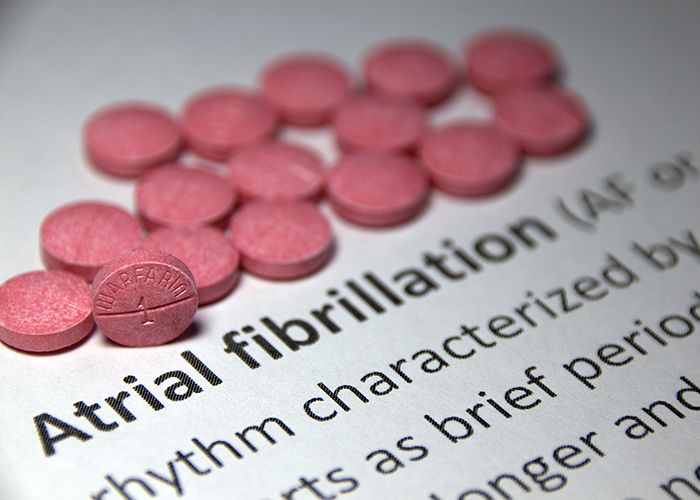
Atrial fibrillation is caused by a problem with conduction in the top chambers of the heart (the atria) that results in irregular progression of the electrical impulse through to the bottom chambers of the heart (the ventricles) and an irregular heartbeat.
Disrupted blood flow leads to clot formation in the left atrial appendage. If the clot (or part of the clot) dislodges and enters the circulation, travelling to the brain, this will result in a stroke.
There are many causes of AF, which can be sub-divided into cardiac and non-cardiac.
Cardiac causes include ischaemic heart disease, hypertension, valvular heart disease, cardiac surgery and heart failure
Non-cardiac causes include sepsis, pneumonia/chest infection, hyperthyroidism and excess alcohol intake. It is important to try to identify the aetiology and where possible treat the underlying cause.
